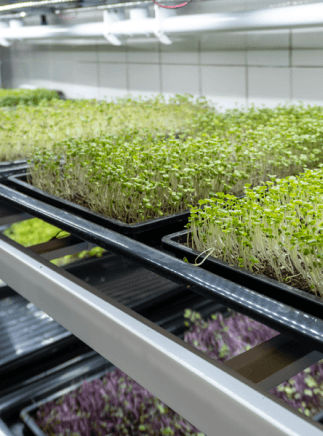CHECK-IN
CHECK-OUT
Sustainable Tourism in Cape Town: Supporting Local Communities and Conservation Efforts
11 September 2024 The President Hotel growing micro-greens
The President Hotel growing micro-greens
Cape Town, with its stunning landscapes, rich biodiversity, and vibrant cultural heritage, is an exceptional destination for travelers worldwide. However, as tourism grows, so does the need for sustainable practices that support local communities and conservation efforts. Here’s how Cape Town is embracing sustainable tourism and how you can contribute during your visit.
The Importance of Sustainable Tourism
Sustainable tourism aims to minimise the negative impacts of travel while enhancing the benefits for local communities and the environment. In Cape Town, this means preserving the city's unique natural and cultural resources for future generations.
Supporting Local Communities
Stay at Locally-Owned Accommodations: Choose guesthouses, B&Bs, and hotels owned and operated by local residents. This ensures that your spending directly benefits the local economy and supports livelihoods.
Eat and Shop Locally: Visit local markets, dine at locally-owned restaurants, and buy souvenirs from local artisans. The Neighbourgoods Market in Woodstock and the V&A Waterfront Food Market are great places to start.
Engage with Local Guides: Hire local guides for your tours. They offer unique insights into Cape Town's culture, history, and natural beauty, and your support helps maintain their livelihoods.
Participate in Community-Based Tourism Initiatives: Programs like Township Tours offer a respectful and insightful way to learn about the daily lives of Cape Town’s diverse communities. Ensure these tours are conducted ethically and with the consent and participation of local residents.
 V&A Waterfront
V&A Waterfront
Conservation Efforts
Visit Nature Reserves and National Parks: Cape Town is home to Table Mountain National Park, the Cape Floral Region, and numerous other reserves. Your entry fees contribute to the conservation of these areas.
Support Wildlife Conservation Projects: Engage with organizations dedicated to protecting local wildlife. The Two Oceans Aquarium and SANCCOB (Southern African Foundation for the Conservation of Coastal Birds) offer educational experiences that support their conservation efforts.
Reduce Your Environmental Footprint: Opt for eco-friendly transportation options like biking, walking, or using public transport. Reduce plastic use by carrying a reusable water bottle and shopping bag. Cape Town is known for being very pedestrian friendly and walking or biking to your destination is a breeze.
The President Hotel is a great example of accommodation that is serious about sustainability. They grow their own produce, limit single plastic use and make use of energy saving appliances.
